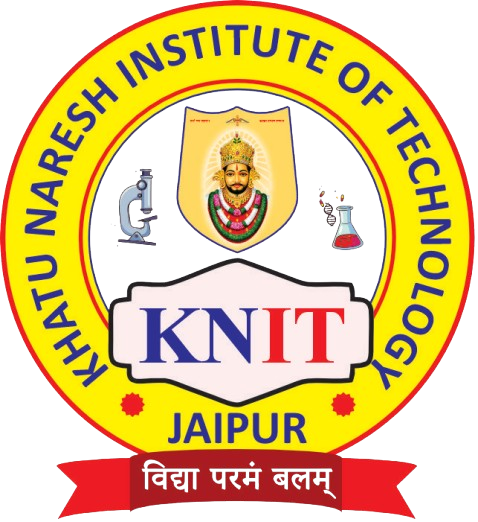Welcome to the Department of Electrical Engineering
Illuminating Minds, Energizing Progress
The Department of Electrical Engineering at KNIT Jaipur equips students with a solid grounding in electrical theory, power systems, control engineering, and modern electronics. Our curriculum is meticulously crafted to balance theoretical foundations with real-world applications, preparing students for dynamic careers in both core electrical domains and interdisciplinary fields like renewable energy, automation, and smart grids.
We are committed to fostering analytical thinking, problem-solving skills, and a deep understanding of electrical phenomena that drive modern technology and infrastructure.
Our Academic Programs
B.Tech. (Electrical Engineering)
- Duration: 4 Years (8 Semesters)
- Program Overview: This program provides a comprehensive education in the core areas of electrical engineering, including power systems, electrical machines, control systems, power electronics, and fundamental electronics. Students gain both theoretical knowledge and hands-on skills essential for designing, developing, and maintaining electrical systems and infrastructure.
Program Highlights
- Strong emphasis on practical skills through well-equipped labs and projects.
- Exposure to simulation tools like MATLAB, PSCAD, Simulink for system analysis.
- Focus on emerging areas like renewable energy, smart grids, and industrial automation.
- Opportunities for interdisciplinary projects in areas like electric vehicles.
- Regular seminars, workshops, and industrial visits for practical insights.
Key Areas of Study & Learning Outcomes
Core Areas of Study
- Power Systems and Generation, Transmission & Distribution
- Electrical Machines and Drives (DC, AC, Special Machines)
- Control Systems and Automation
- Power Electronics and Industrial Applications
- Renewable Energy Technologies (Solar, Wind)
- Circuit Analysis and Network Theory
- Analog and Digital Electronics
What You'll Learn: Program Outcomes
- Ability to analyze and design complex electrical circuits and systems.
- Proficiency in modeling, simulating, and controlling electrical machinery and power systems.
- Competence in applying power electronics for energy conversion and control.
- Skills in designing and implementing automation and control solutions.
- Understanding of sustainable energy generation and integration into the grid.
- Effective communication, teamwork, and ethical professional conduct.
State-of-the-Art Laboratories & Facilities
Advanced Power Systems Lab
Equipped with protection relays, SCADA systems, power quality analyzers, and simulation software like PSCAD/ETAP for analyzing grid operations.
Electrical Machines Lab
Features various types of DC and AC machines, transformers, and experimental setups to study their characteristics and performance.
Control & Automation Lab
Houses PLC-SCADA trainers, PID controllers, servomotors, and simulation environments for designing and implementing control algorithms.
Power Electronics Lab
Dedicated lab with power converters (AC-DC, DC-DC, DC-AC), inverters, and drive systems for hands-on experience in power control.
Renewable Energy Systems Lab
Equipped with solar PV trainers, wind turbine simulators, and battery storage systems for research and experimentation in sustainable energy.
Basic Electrical & Electronics Lab
Fundamental lab for circuit theory, analog and digital electronics, providing the building blocks for advanced electrical concepts.
Your Future in Electrical Engineering: Career Opportunities
Power Systems Engineer
Electronics Engineer
Control Systems Engineer
Renewable Energy Engineer
Smart Grid Specialist
Electric Vehicle Engineer
Excellent Placements & Career Growth
Empowering Your Professional Journey
The Department of Electrical Engineering is dedicated to preparing students for successful careers across power systems, electronics, automation, and renewable energy sectors. Our Placement & Training Cell offers comprehensive support to help students connect with leading employers.
With resume-building workshops, technical training, mock interviews, and strong industry collaborations, students graduate with the confidence and capability to thrive in the modern electrical and energy industries.
